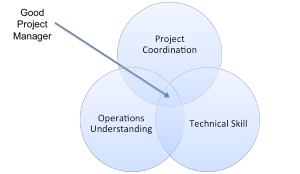I read a blog recently that discussed exceeding customer expectations in an e-commerce context. This got me thinking about customer expectations in the broader business sense. Customer service has been a huge part of my business education from my own family’s businesses as well as other successful small businesses I’ve been a part of. I do think there are a few variances to how you should exceed customer expectations in a business to business (b2b) environment as compared to business to consumer (b2c).
The most critical components of delivering exceptional customer service in a consulting environment are trust, honesty, and communication. While these all 3 go hand in hand, each should be considered a separate initiative you need to foster as your relationship develops over time.
Trust
Consulting, like many other types of b2b businesses, is built on trust. Your customers are trusting you as experts or supplemental resources. They are often sharing the most basic aspects of their business with you so you can provide a service. The entire sales, implementation and customer success experience is about building that trust. If you do something to cause that trust to be questioned, every decision you make comes into question. This ultimately challenges who the customer buyer is and what they believe.
Lack of honesty or poor communication are two ways that you can quickly and easily deplete that trust.
Honesty
I think we all know how important it is to be honest. Unfortunately, sticky business situations can often challenge our abilities. For example, the situation where you are the “expert” but don’t know the answer to the question; or where you were unable to complete one set of customer work because you were too busy with another. I have found that your best option is still to be as honest as you can. In the first example, you can say “I don’t know, but let me know find out for you.” This is generally an acceptable response. Customers tend to appreciate this more than making something up, then having decisions made based on incorrect information. It takes less effort to wait to make decisions until after you have the information than it does to have to make corrections later on.
In the latter example, it was regrettable for you to have gotten to this question at all. Ideally, you would have clearly articulated what you were going to accomplish and when, setting very clear expectations. This might have involved a discussion around urgent versus minor issues with respective response times. Depending on the customer relationship, this may have also included a more detailed discussion around your prioritization model (don’t have one, see defining your customer prioritization model).
Communication
Almost every misunderstanding comes from poor communication. This might be lack of communication or poorly articulated communication. It doesn’t matter as these are equally bad. Communication is how you are show your honesty to your customers and how you build that trust. It comes in many forms – from quick social media engagements to project engagement emails, to marketing sales contact and training materials. Your honest voice must carry through every piece of communication, in order to build and maintain trust.
